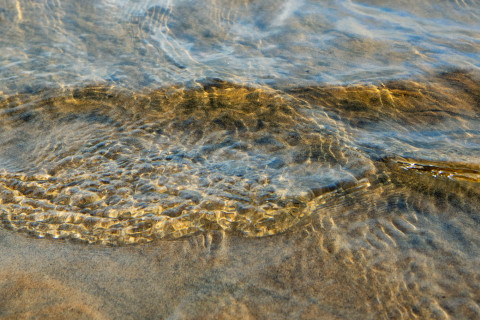The doctoral dissertation in the field of Environmental Law will be examined at the Faculty of Social Sciences and Business Studies at Joensuu campus. The public examination will be streamed online.
What is the topic of your doctoral research? Why is it important to study the topic?
My dissertation examines a frequently used regulatory approach in EU environmental law, setting legally binding environmental quality objectives, and their effectiveness. In particular, the dissertation studies the regulatory solutions to protect waters and the marine environment in the EU Water Framework Directive and Marine Strategy Framework Directive. The topic is particularly relevant and timely in the light of the EU Green Deal, which has included ambitious targets for promoting new, lower-emission industries while improving and restoring the state of the environment, including water and the marine environment. In Finland too, the green transition has been a key focus of Prime Minister Orpo's government programme and its legislative agenda.
In terms of EU regulation, my dissertation examines how successful existing regulatory solutions for water protection and marine conservation have been in safeguarding water status. At least in Finland, water status objectives have received attention primarily due to the constraints they have imposed on the permitting of new industrial projects (most notably the Finnpulp pulp mill, which received a negative permit decision in 2019 at the KHO).
While environmental quality objectives have created strict conditions for the permitting of new projects, their wider legal implications, particularly in terms of water and marine improvement and restoration, remain unclear. Understanding EU legislation on water and marine protection and the need for legally binding measures to protect water and the marine environment is essential.
What are the key findings or observations of your doctoral research?
A key finding of the study was that EU environmental law has been heavily regulated on the basis of theories and assumptions developed in other disciplines, particularly natural sciences, environmental policy and social sciences, about the effective way to manage, for example, the water environment. However, a key finding of the study is that legal regulation behaves and its effectiveness is built on a different operational logic, which needs to be approached from within the legal order.
The EU WFD and MSFD rely on the setting of legally binding environmental quality objectives: the idea is that Member States would have a binding obligation to prevent deterioration of surface, ground and marine waters and to take active measures to improve their status. The study shows that, due to the structure of the legal order, which makes it easier to take a strict approach to new activities than to tackle old ones or to impose active environmental measures, the legal content of these directives has evolved mainly to restrict new activities. In particular, the objectives of the Water Framework Directive have become rather strict conditions for the granting of permits for new projects.
At the same time, the Directives have failed to formulate clear legal obligations for Member States, for example, to address pollution from existing activities, to develop new instruments, for example, diffuse pollution or seek active legislative solutions to support restoration. A key finding of the study is that the structure of the legal order influences the effectiveness and efficiency with which such regulatory instruments can guide the development of water status. With regard to the Water Framework Directive and the Marine Strategy Directive, it is clear that the state of water and the seas has not improved much since the implementation of the Directives.
The key conclusion is that, rather than using environmental law as an instrument in its own right, achieving sustainability objectives requires that legal guidance be considered specifically outside the realm of environmental law, for example studying the structural elements of the legal order and societies prevent or slow down the steering towards environmental quality objectives and how regulatory and policy instruments that shape and promote sectors of economic activity take account the need for a reduction of negative environmental impacts.
How can the results of your doctoral research be utilised in practice?
The results of the dissertation are specifically targeted at EU legislative work and can be used to assess new regulatory needs to achieve the goals of the Green Deal. The results will also be useful for national law-making in that the dissertation will provide a better understanding of Finland's EU legal obligations in the field of water and marine protection.
What are the key research methods and materials used in your doctoral research?
The main research methods used in my dissertation were regulatory theory and legal doctrinal analysis, which approached EU water and marine protection legislation as part of a broader EU legal context. My dissertation research was linked to several broader multidisciplinary research projects, most importantly the STN project Blueadapt, the Academy project Sushydro – towards environmentally, economically and socially sustainable hydropower management and the EU Horizon project Crossgov.
If your doctoral dissertation consists of several articles, when was the most recent article published/will be published (estimate)?
The most recent PhD article was published in the Journal of Environmental Law in March 2024 (Vol 36, Issue 1). The article is a joint article with Mari Pihalehdo, PhD researcher at the University of Helsinki, and is entitled Uncharted Interplay and Troubled Implementation: Managing Hydropower's Environmental Impacts under the EU Water Framework and Environmental Liability Directives.
For further information:
M.Sc. (Admin.) Suvi-Tuuli Puharinen, [email protected], p. 050 449 4701
The doctoral dissertation of Suvi-Tuuli Puharinen, M.Sc. (Admin.), entitled Normative Environmental Quality as a Regulatory Strategy in EU environmental law : Legal implications of water status objectives will be examined at the Faculty of Social Sciences and Business Studies. The Opponent in the public examination will be Professor Marleen van Rijswick of the University of Utrecht, and the Custos will be Professor Antti Belinskij of the University of Eastern Finland.
